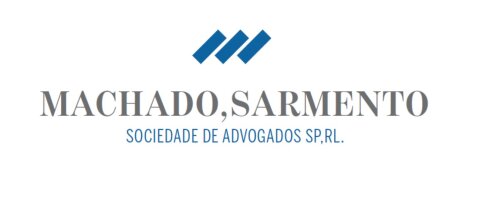Best Criminal Litigation Lawyers in Porto
Share your needs with us, get contacted by law firms.
Free. Takes 2 min.
List of the best lawyers in Porto, Portugal
About Criminal Litigation Law in Porto, Portugal
Criminal litigation in Porto, Portugal involves the legal processes surrounding the investigation, prosecution, and defense of individuals accused of criminal activities. The Portuguese criminal justice system is governed by the country’s Penal Code and Code of Criminal Procedure, which outline the procedures for criminal trials, rights of the accused, and the role of courts and prosecutors. As Porto is a large metropolitan area, its courts regularly handle a wide variety of criminal cases, from minor offenses to serious crimes.
Why You May Need a Lawyer
Being involved in a criminal matter can be daunting, whether you are accused of a crime, a victim, or a witness. Here are common situations in which you may require legal assistance in criminal litigation:
- Being arrested or detained by police
- Being formally charged with a criminal offense
- Receiving a summons to appear in court as a defendant or witness
- Having your property seized during a criminal investigation
- Receiving notice of an ongoing criminal inquiry involving you
- Being a victim of a crime seeking representation or support
- Wanting to appeal a criminal conviction or sentence
- Negotiating plea bargains with prosecutors
Lawyers experienced in criminal litigation can help protect your rights, provide clarity regarding your situation, and navigate the often complex Portuguese legal system.
Local Laws Overview
Criminal law in Porto is fundamentally the same as elsewhere in Portugal, but it is applied by the local courts and law enforcement agencies within the city and surrounding region. Here are key aspects to be aware of:
- Presumption of Innocence: Anyone accused of a crime is presumed innocent until proven guilty.
- Right to Legal Representation: You have the right to a lawyer at all stages of the criminal process, including during police questioning.
- Types of Offenses: Crimes in Portugal are generally categorized as crimes (criminal offenses) and contra-ordenações (minor offenses), each with different procedures and penalties.
- Role of Prosecutors: The Ministério Público is responsible for investigating and prosecuting crimes.
- Stages of Proceedings: Criminal cases involve investigation, instruction (pre-trial), trial, and appeal phases.
- Bail and Detention: Pre-trial detention is only allowed in certain situations, with alternatives like bail available in many cases.
- Appeals: Defendants have the right to appeal convictions or sentences to higher courts.
- Restorative Justice: Alternative dispute resolution and mediation may be available for some victims and offenders.
Frequently Asked Questions
What should I do if I am arrested in Porto?
If you are arrested, remain calm and ask for a lawyer immediately. You have the right to remain silent and to consult with a legal professional before answering questions.
Do I need a lawyer if I am only being questioned by police?
Yes, you have the right to legal representation during police questioning. A lawyer will help protect your rights and advise you on how to respond.
Can I choose my own lawyer?
Yes, you may choose your lawyer. If you cannot afford one, the state will appoint a public defender to represent you.
How long can I be detained without charges in Portugal?
Portuguese law sets strict time limits for detention without charges, typically up to 48 hours, after which a judge must review your case.
What are the stages of a criminal trial in Porto?
The main stages are investigation, instruction (pre-trial preparation), trial, judgment, and appeal if necessary.
What happens if I am convicted?
If convicted, the court will impose a sentence according to the Penal Code. Your lawyer can advise you on the possibility and process for an appeal.
Can minor offenses be resolved outside of court?
Some minor offenses may be resolved through administrative proceedings or settlements, depending on the case and the parties involved.
How do I report a crime in Porto?
You can report a crime at any police station or directly to the Public Prosecutor’s office (Ministério Público).
Are proceedings conducted in Portuguese?
Yes, criminal proceedings are conducted in Portuguese. If you do not speak Portuguese, you are entitled to an interpreter.
What rights do victims of crime have?
Victims have the right to participate in proceedings, access support services, and seek compensation or protective measures if necessary.
Additional Resources
If you need further information or help, consider contacting these organizations and resources:
- Ordem dos Advogados (Portuguese Bar Association): For finding registered criminal lawyers in Porto.
- Instituto de Apoio à Criança (Child Support Institute): For cases involving minors.
- Comissão para a Igualdade e Contra a Discriminação Racial (CICDR): For crimes involving discrimination or hate crimes.
- Polícia Judiciária: The main investigative police authority for serious crimes.
- Ministério Público: Office of the Public Prosecutor for criminal case inquiries and victim support.
- Gabinete de Apoio à Vítima (Victims’ Support Office): Provides support to victims of crime.
Next Steps
If you are facing a criminal matter in Porto, Portugal, take the following steps:
- Remain calm and avoid discussing your case with anyone but your lawyer.
- Contact a qualified criminal lawyer in Porto as soon as possible. If you do not know one, you may seek assistance from the Ordem dos Advogados.
- Gather all relevant documents and information related to your case to provide to your lawyer.
- Follow your lawyer’s advice closely, especially regarding communication with authorities.
- Attend all required court dates and meetings with your legal representative.
Receiving timely and professional legal advice is crucial to ensure your rights are protected throughout the criminal litigation process in Porto, Portugal.
Lawzana helps you find the best lawyers and law firms in Porto through a curated and pre-screened list of qualified legal professionals. Our platform offers rankings and detailed profiles of attorneys and law firms, allowing you to compare based on practice areas, including Criminal Litigation, experience, and client feedback.
Each profile includes a description of the firm's areas of practice, client reviews, team members and partners, year of establishment, spoken languages, office locations, contact information, social media presence, and any published articles or resources. Most firms on our platform speak English and are experienced in both local and international legal matters.
Get a quote from top-rated law firms in Porto, Portugal — quickly, securely, and without unnecessary hassle.
Disclaimer:
The information provided on this page is for general informational purposes only and does not constitute legal advice. While we strive to ensure the accuracy and relevance of the content, legal information may change over time, and interpretations of the law can vary. You should always consult with a qualified legal professional for advice specific to your situation.
We disclaim all liability for actions taken or not taken based on the content of this page. If you believe any information is incorrect or outdated, please contact us, and we will review and update it where appropriate.












